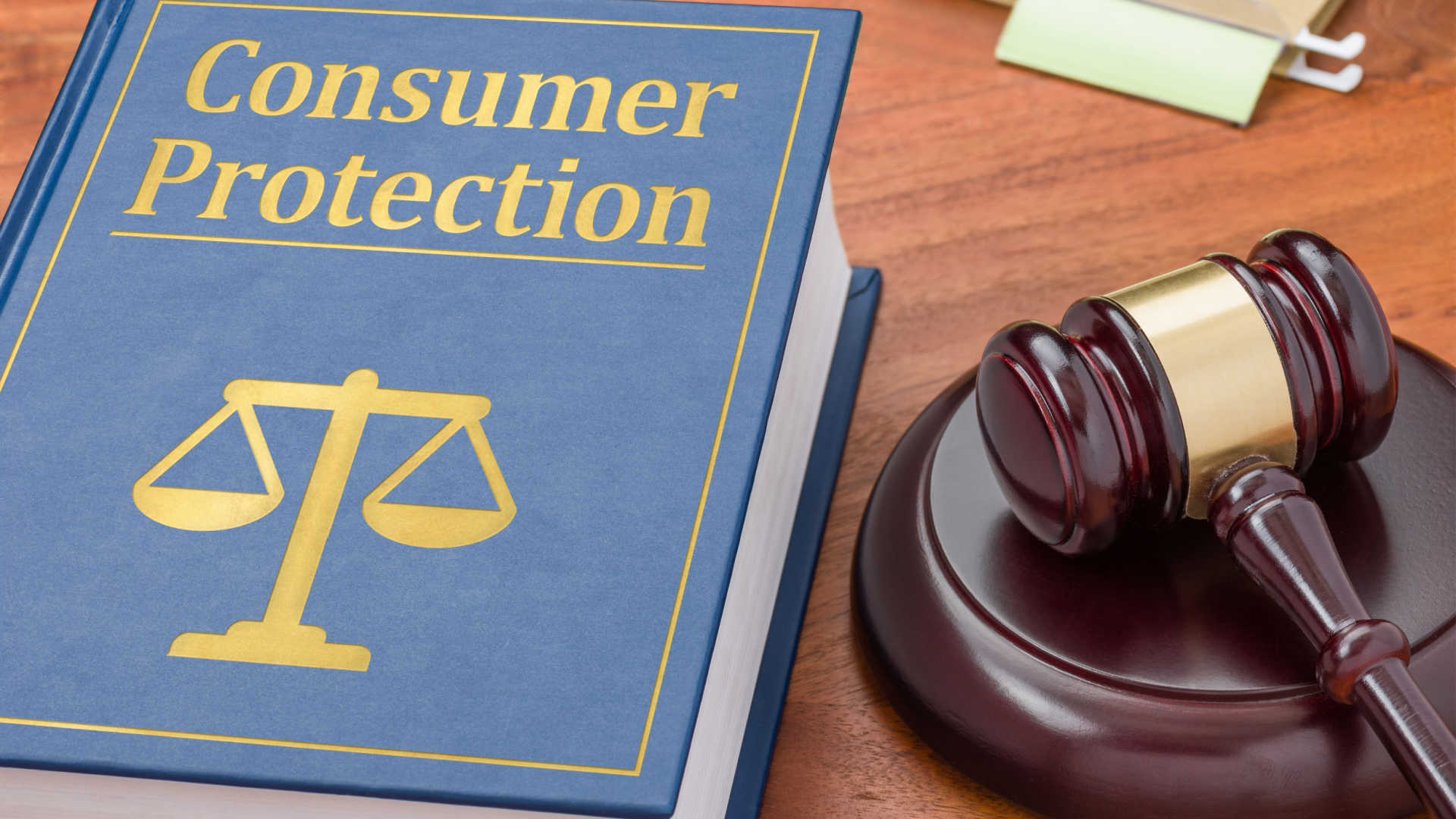Table of Contents
1. What is Consumer Protection Law?
Consumer protection law is a body of laws and regulations designed to protect consumers from unfair business practices, including fraud, misrepresentation, and unsafe products. These laws seek to ensure that consumers are treated fairly, have access to accurate information, and can make informed purchasing decisions.
Key objectives of consumer protection law include:
-
Ensuring fairness: Prevent businesses from engaging in deceptive or unfair practices that can harm consumers.
-
Promoting transparency: Require businesses to provide clear and accurate information about products, services, and terms of sale.
-
Guaranteeing product safety: Ensure that products are safe for consumers to use and meet specified standards.
-
Providing remedies: Offer consumers the ability to seek compensation or redress when they have been wronged.
2. Types of Consumer Protection Laws
Consumer protection laws cover a wide range of issues, each addressing specific aspects of consumer rights. Some of the most significant types of smashingtrade.com/ include:
A. Product Safety Laws
One of the most critical aspects of consumer protection is ensuring that products sold in the marketplace are safe for use. Product safety laws regulate the manufacture, labeling, and sale of consumer goods to minimize the risk of harm to consumers.
-
Consumer Product Safety Commission (CPSC): In the United States, the CPSC oversees the safety of consumer products, recalling dangerous items and issuing guidelines for safe product design.
-
Recalls: When a product is found to be defective or dangerous, consumer protection laws require manufacturers to recall the product and compensate consumers for any harm caused.
B. False Advertising and Misleading Claims
Businesses must be truthful in their advertising and marketing practices. False advertising laws prevent companies from making deceptive or misleading claims about the products or services they offer.
-
The Federal Trade Commission (FTC): In the U.S., the FTC enforces laws prohibiting deceptive advertising. For example, companies cannot claim that a product can perform miracles if there is no scientific evidence to back up the claims.
-
Class Action Lawsuits: Consumers who have been harmed by false advertising or deceptive business practices may be able to bring class action lawsuits to hold companies accountable.
C. Consumer Credit Protection Laws
Consumer credit protection laws safeguard consumers against unfair lending practices and ensure they have access to accurate information about credit terms.
-
Truth in Lending Act (TILA): In the U.S., this law requires lenders to disclose the annual percentage rate (APR), terms of the loan, and the total cost of borrowing so that consumers can make informed decisions about taking on debt.
-
Fair Credit Reporting Act (FCRA): This law ensures that consumers have the right to access their credit reports, dispute inaccurate information, and prevent the misuse of their credit information.
-
Fair Debt Collection Practices Act (FDCPA): Protects consumers from harassment and abusive practices by debt collectors, requiring them to follow strict guidelines when contacting consumers about debt repayment.
D. Unfair and Deceptive Business Practices
Consumer protection laws prohibit unfair or deceptive business practices that harm consumers, such as charging hidden fees, overcharging for products, or engaging in unethical sales tactics.
-
Unfair Practices: Laws require businesses to act in good faith and avoid exploiting consumers through misleading or predatory practices.
-
Deceptive Tactics: Fraudulent sales tactics like bait-and-switch or false promises are prohibited by law. For instance, if a business advertises a sale or deal, they must deliver on the promised price or terms.
E. Consumer Privacy and Data Protection Laws
With the rise of online transactions, consumer privacy and data protection have become significant areas of concern. Laws exist to ensure that companies handle personal data responsibly and protect consumer privacy.
-
General Data Protection Regulation (GDPR): In the European Union, the GDPR mandates that businesses obtain explicit consent from consumers before collecting their personal data and provides individuals with the right to request their data be deleted or corrected.
-
California Consumer Privacy Act (CCPA): The CCPA grants California residents the right to know what personal information businesses are collecting about them, request that their data be deleted, and opt out of having their data sold to third parties.
F. Consumer Warranties and Guarantees
Consumer protection laws also cover warranties and guarantees, ensuring that consumers are not stuck with defective products or services.
-
Implied Warranties: Under the law, there are certain implied warranties, such as the implied warranty of merchantability, which means that products must work as expected for their intended use.
-
Express Warranties: These are warranties or guarantees explicitly stated by the seller, promising that a product will meet certain standards or perform as described.
G. Consumer Contracts and Terms of Service
Consumer protection laws regulate the terms and conditions of contracts between businesses and consumers, ensuring that consumers are not bound by unfair or unenforceable terms.
-
Unconscionable Terms: Courts can void contracts or terms that are overly one-sided or unfair, such as a company that includes excessive penalties for canceling a service.
-
Contract Transparency: Businesses must provide clear and understandable terms and conditions in consumer contracts, so consumers are fully aware of their rights and obligations.
3. How Consumer Protection Laws Benefit Consumers
Consumer protection laws are designed to offer consumers multiple levels of protection. These laws provide the following benefits:
A. Access to Justice
Consumers who have been wronged by a business have the legal right to pursue justice. Whether it’s through filing a complaint with a regulatory body or taking legal action, consumer protection laws provide avenues for consumers to seek compensation and hold businesses accountable.
-
Dispute Resolution: Many jurisdictions offer formal mechanisms for resolving disputes, such as consumer complaint boards, regulatory agencies, and ombudsman services, which can help resolve conflicts without going to court.
B. Promoting Transparency and Fairness
Consumer protection laws require businesses to disclose accurate information, which helps consumers make informed decisions about their purchases and financial commitments. Transparency in advertising, product labeling, and service contracts is essential for fair competition in the market.
C. Encouraging Safe and Reliable Products
Regulations aimed at product safety ensure that consumers can trust the items they purchase. From food and medicine to electronics and automobiles, consumer protection laws are designed to guarantee that products meet specific safety standards to prevent harm.
D. Protecting Vulnerable Consumers
Certain groups of consumers, such as the elderly or low-income individuals, are particularly susceptible to fraud and exploitation. Consumer protection laws aim to safeguard these vulnerable groups by preventing scams, deceptive advertising, and unfair lending practices.
4. How Businesses Can Comply with Consumer Protection Laws
Businesses must comply with a wide array of consumer protection laws to avoid penalties, lawsuits, and reputational damage. To ensure compliance, businesses should:
-
Stay Informed: Regularly review and update business practices to stay aligned with changing consumer protection laws.
-
Provide Clear Disclosures: Ensure that product descriptions, advertisements, and service contracts are clear, honest, and transparent.
-
Implement Fair Practices: Treat consumers fairly by honoring warranties, offering quality products, and avoiding deceptive sales tactics.
-
Protect Consumer Data: Establish strong security measures to protect consumers’ personal and financial information.
-
Offer Clear Terms and Conditions: Provide easily accessible and understandable terms of service, contracts, and privacy policies.
5. Conclusion
Consumer protection law plays a critical role in ensuring that consumers are treated fairly and that businesses operate with transparency and accountability. These laws create a safer marketplace by preventing fraud, deception, and harm while providing remedies for consumers who have been wronged. For businesses, staying compliant with consumer protection laws is essential to building trust and ensuring long-term success.
By understanding your rights as a consumer and taking proactive steps to protect yourself from unfair practices, you can navigate the marketplace with confidence and security.




